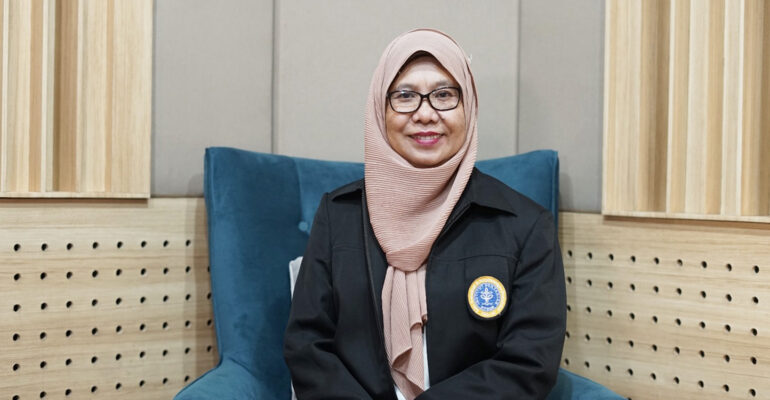Professor of Gender Counseling at IPB University: The Role of Women Farmers is Important but Invisible

Prof Anna Fatchiya, lecturer at the Department of Communication and Community Development, Faculty of Human Ecology (Fema) IPB University, said that the central role of women in the agricultural sector is currently very important but invisible.
According to the Professor of Gender Counseling at IPB University, the significant contribution of women farmers is often obscured by the dominance of men in decision-making forums. As a result, it is not uncommon for government programs in agriculture to show gender bias.
“So far, the planning and implementation up to the evaluation of development programs have involved more men, so that the needs and problems faced by women are less accommodated,” she said.
“Terms such as ‘gender blind’ or ‘gender unresponsive’ have emerged to describe this condition, which is influenced by a strong patriarchal culture,” she continued.
Broadly speaking, the role of women in farming households is divided into three: reproductive roles (care and domestic work), production roles (involved in the entire cycle of farming, decision-making, and financial management), and social roles (active in farmer groups, village cooperatives, posyandu, and other community activities).
Prof Anna further said that the issue of women farmers who are heads of households is also often overlooked. Farmer groups tend to be dominated by male heads of households, even though many women are the backbone of the family.
Her research shows that agricultural extension as the spearhead of rural development is not fully gender responsive. For example, it only invites male farmers and decision-making is dominated by men.
“In fact, women should have access to information and other resources, participate and control equally in development programs, and get fair benefits,” she said.
Women and Climate Change
In the context of climate change, the role of women is becoming more vital. Prof Anna pointed out that programs to improve farmers’ adaptation and resilience to the impacts of climate change will fail if they do not involve women.
For example, decisions related to changes in farm business management such as determining the purchase of seeds that are resistant to the impacts of climate change, the use of business capital, and others are generally in the hands of wives, so their involvement in counseling is very important.
“Women are the most impacted by crop failures and family economic difficulties. Not once or twice have they been the last to enjoy family resources,” she said.
On the other hand, Prof Anna said, conditions of gender inequality and negative views on leadership abilities also often limited women’s participation and voice.
“Therefore, empowering women and recognizing their invisible contributions are very important in inclusive and sustainable agricultural development,” she said.
Regulation Not Optimal
Presidential Regulation No. 9/2009 on Gender Mainstreaming has actually mandated that all government policies and programs must take into account the potential, problems, needs, and aspirations of both men and women at every stage.
The ultimate goal is to achieve gender equality and justice. However, Prof Anna said, its implementation in various sectors has not been optimal.
She also compared agricultural extension programs funded by international agencies, the central government, and routine programs. As a result, programs funded from abroad tend to pay more attention to women’s involvement through affirmation elements.
Meanwhile, national programs have not explicitly included this. Moreover, many routine programs do not consider women’s conditions, for example in the scheduling of counseling activities.
Gender Responsive Innovation
Prof Anna Fatchiya highlighted the aspect of innovation and technology for women farmers. She said that the agricultural technology produced needs to consider the needs and abilities of women.
For example, palm oil pest sprayers are too heavy so they are not suitable for female workers who are dominant in plantations.
“Gender-responsive innovation, both in terms of ergonomics and ease of use for men and women, is very important,” she explained.
To improve gender responsiveness in development policies and programs, especially in the agricultural sector, Prof Anna suggested several key steps.
First, a strong commitment from leaders at all levels of government and universities to integrate a gender perspective in development programs. Second, the collection and analysis of accurate gender-disaggregated data to identify differences in needs between men and women.
Third, increasing the capacity of human resources (government officials and related parties) in understanding the concept of gender equality and justice, including the balance of gender representation in the extension team.
Fourth, the availability of gender-responsive facilities and infrastructure, which can be accessed and utilized by all. Finally, the implementation of a Gender Responsive Budget (GRB) that ensures the allocation of funds considers the needs and priorities of both men and women. (AS) (IAAS/ASY)



